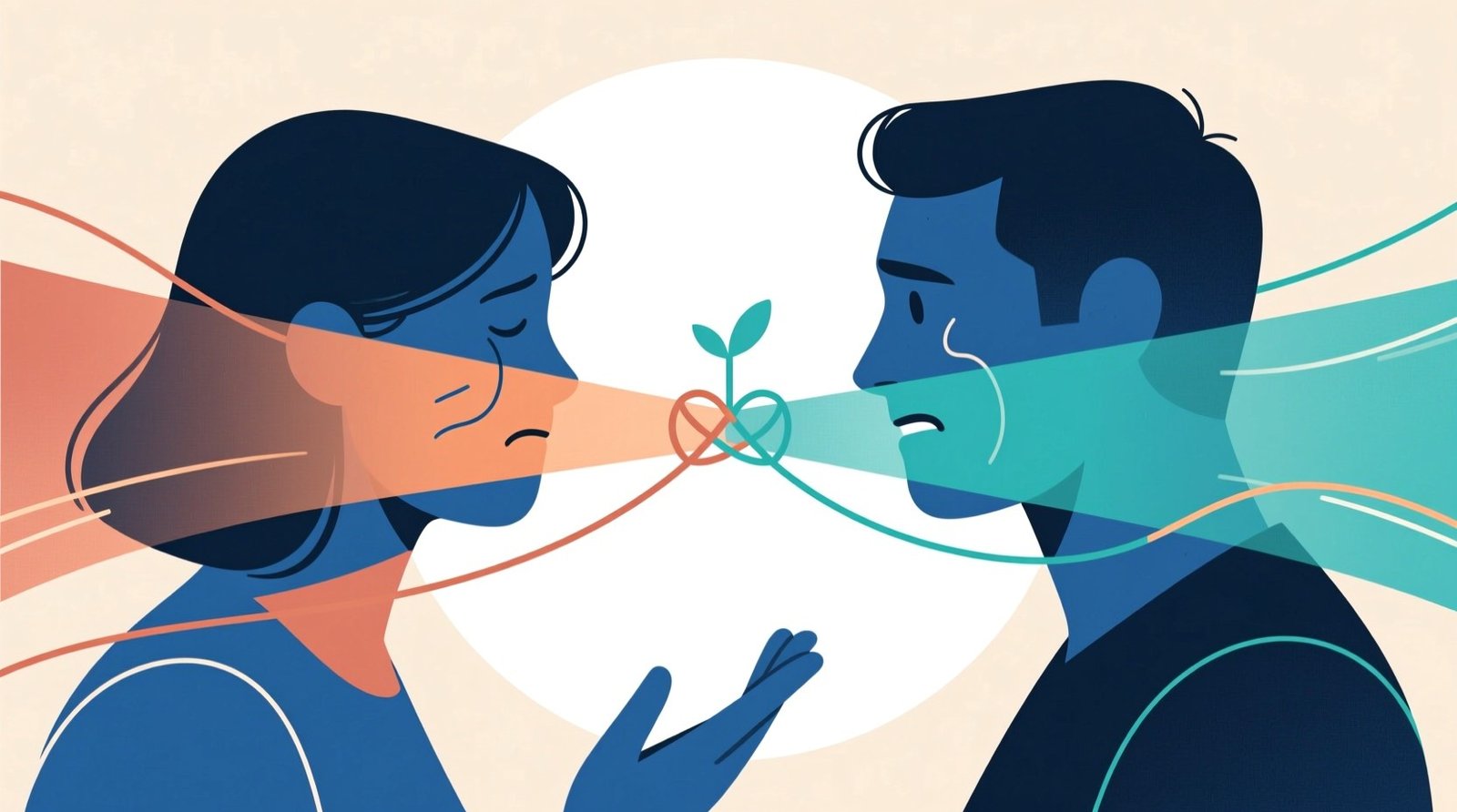The Mind-Body Connection and its Impact on Physical Health
Our mental and emotional well-being can profoundly impact our physical health and vice versa. This concept is not new; it has been recognized and studied for centuries. Ancient medicinal systems like Ayurveda and Traditional Chinese Medicine have historically emphasized achieving harmony between the mind and body for optimal health and wellness.
The Effects of Stress and Positive Emotions on Mental and Physical Health
Contemporary scientific research has started to reveal the processes underlying the interaction between the mind and body. Studies have indicated that stress can negatively impact our psychological and physiological well-being. During periods of stress, our bodies produce stress-related hormones, including cortisol, leading to various physical symptoms, including headaches, muscle tension, and digestive issues. Chronic stress can adversely affect our mental health, leading to issues like anxiety, depression, and various mental health conditions.
Conversely, positive emotions and a healthy mental state can significantly benefit physical health. Research indicates that people with a positive life perspective often experience fewer heart diseases, enhanced immune responses, and quicker recovery from sickness and injuries. This positive impact is partially attributed to the secretion of endorphins, the body’s natural painkillers, which decrease inflammation, strengthen the immune system, and enhance general health.
The Influence of Physical Health on Mental Well-Being
Furthermore, the mind-body connection is not limited to the impact of our mental and emotional state on our physical health. Our physical health can also influence our mental well-being. For example, Regular physical activity has demonstrated beneficial impacts on mental well-being, alleviating depressive symptoms and anxiety and improving overall mood. Similarly, healthy diet can provide the nutrients necessary for optimal brain function, supporting cognitive abilities and mental clarity.
The Power of Thoughts, Beliefs, and Body Image on Well-Being
In addition to the impact of stress and emotions on our physical health, our thoughts and beliefs also profoundly influence our well-being. The power of the mind-body connection cannot be underestimated. Our beliefs about our health can shape our experiences and outcomes.
For example, research has shown that individuals who have a positive mindset and believe in their ability to heal and recover from illness often have better health outcomes than those who hold negative beliefs or feel hopeless. This is known as the placebo effect, The concept that a person’s faith in a treatment or intervention can produce actual physiological alterations in the body.
Moreover, our thoughts and attitudes toward our bodies can directly impact our behaviors and lifestyle choices. Suppose we have a negative body image or constantly criticize ourselves. In that case, we are more likely to engage in unhealthy habits such as restrictive eating or excessive exercise to conform to societal beauty standards. These behaviors can lead to disordered eating patterns, low self-esteem, and a host of physical health problems.
On the other hand, individuals who have a positive body image and practice self-acceptance are more likely to engage in self-care behaviors that promote good health. They are more likely to nourish their bodies with nutritious foods, grab in regular physical activity that they enjoy, and prioritize their mental and emotional well-being. These positive lifestyle choices can significantly impact physical health outcomes, such as maintaining healthy weight, Mitigating the risk of chronic diseases, and enhancing overall health fitness levels.
The Impact of Physical Activity on Brain Health and Cognitive Function
The body’s influence on the mind extends beyond merely triggering endorphin release. Studies have identified that consistent physical activity benefits brain health and mental capabilities. Regular physical activity has been linked to an increase in the size of the hippocampus, which is essential for memory and learning processes. Regular physical activities can bolster memory retention and amplify cognitive skills.
In addition to the direct effects on the brain, taking care of our physical health can also indirectly impact our mental well-being by improving our self-esteem and body image. When we exercise regularly and maintain a healthy lifestyle, we often experience improvements in our physical appearance. This can increase self-confidence and a more positive body image, boosting our mental health and well-being.
In addition to enhancing mood and mental acuity, engaging in physical activity has broader advantages, notably in mitigating the likelihood of encountering mental health issues like depression and anxiety. This protective effect is based on exercise’s capacity to modulate brain chemicals, including serotonin and dopamine. These neurotransmitters are crucial in managing our emotional and mood states.
It is important to note that the impact of the body on the mind is not limited to exercise alone. Other lifestyle factors, such as proper nutrition and sleep, are crucial in maintaining optimal mental health. A diet rich in nutrients, such as omega-3 fatty acids and antioxidants, can support brain health and reduce the risk of mental decline. Similarly, getting enough sleep is essential for the brain to rest and recharge, allowing optimal cognitive function and emotional well-being.
Practical Ways to Nurture the Mind-Body Connection
In conclusion, the relationship between the body and the mind is complex and interconnected. Taking care of our physical health through regular exercise, proper nutrition, and adequate sleep can profoundly impact our mental and emotional well-being. By prioritizing our physical well-being, we can enhance our cognitive abilities, improve our mood, and reduce the risk of developing mental health conditions. Investing in our physical health is not only beneficial for our bodies but also for our minds.
1) Nourish Your Body with a Healthy Diet:
Our food is crucial to our overall well-being, including our mind-body connection. A healthy diet of fruits, vegetables, whole grains, and lean proteins provides the necessary nutrients to support physical and mental health. Include foods known to boost brain function and mood, such as fatty fish rich in omega-3 fatty acids, dark chocolate, and berries packed with antioxidants. Avoid processed foods, excessive sugar, and unhealthy fats, as they can negatively impact your physical and mental well-being.
2) Get Sufficient Sleep:
Ensuring sufficient sleep is crucial for sustaining a healthy connection between mind and body. While we sleep, our bodies undergo repair and rejuvenation, and our brains work on solidifying memories and managing emotions. Insufficient sleep can result in heightened stress levels, reduced cognitive capabilities, and a compromised immune system. To maintain health, it’s important to have a regular sleeping schedule that allows for 7-9 hours of restful sleep per night. Ensure your bedroom is cool, dark, and quiet to improve sleep quality. Minimize electronic devices before sleep since their blue light can interfere with natural sleep cycles.
3) Seek Professional Help:
If you are struggling to nurture your mind-body connection or experiencing persistent mental or physical health issues, don’t hesitate to seek professional help. A qualified therapist, counselor, or healthcare provider can provide guidance, support, and treatment options tailored to your needs. Remember that taking care of your mind and body is an ongoing process. Incorporating these practical ways into your daily life can cultivate a strong and harmonious mind-body connection, improving overall well-being and a more fulfilling life.
People also ask:
1) What is the connection between mental health and physical health?
Mental health and physical health are deeply interconnected. Good mental health can enhance physical well-being, while physical health issues can negatively impact mental health. For example, chronic physical illnesses can increase the risk of developing mental health disorders like depression or anxiety, while mental health conditions can lead to physical health problems, such as impaired immune function or cardiovascular diseases.
2) What is the mind-body connection and its influence on health?
The mind-body connection refers to the relationship between an individual’s thoughts, emotions, and beliefs, and their physical health. This connection is based on the idea that the mind and body are not separate entities but interconnected systems that affect each other. For instance, stress or negative emotions can lead to physical symptoms like increased heart rate and muscle tension, while positive mental states can promote physical healing and well-being.
3) Is there a connection between your thoughts feelings and your physical body?
Yes, there is a significant connection between one’s thoughts, feelings, and the physical body. Emotional and psychological stress can manifest as physical symptoms and may contribute to the development of diseases like hypertension, heart disease, and digestive disorders. Conversely, physical ailments can affect one’s mental state, leading to stress, depression, or anxiety, which highlights the bidirectional nature of the mind-body connection.







Attention All of that s my eyes no any surprize